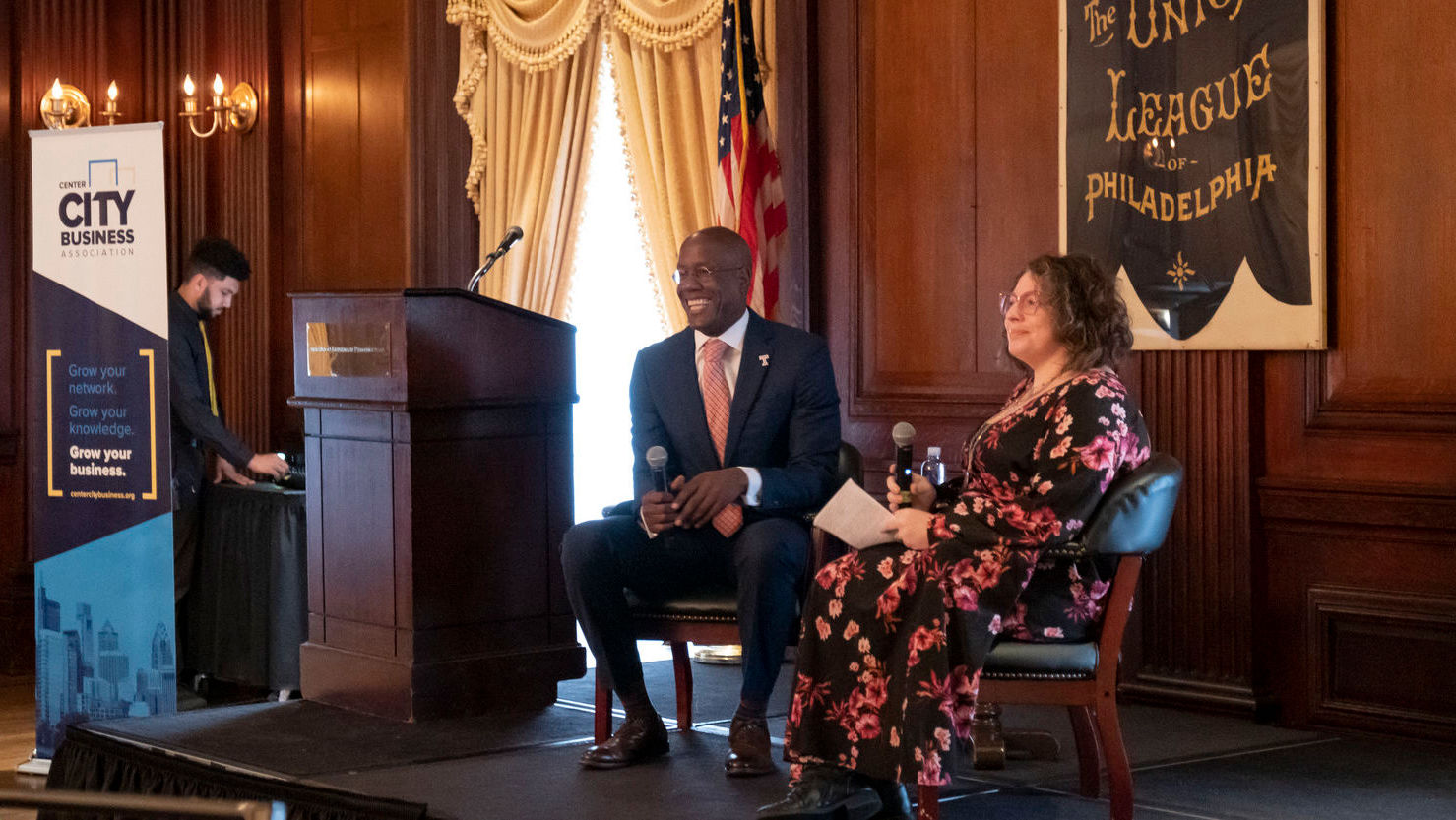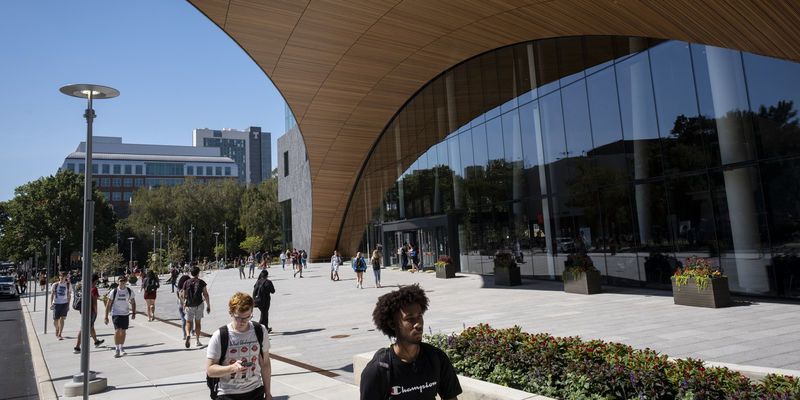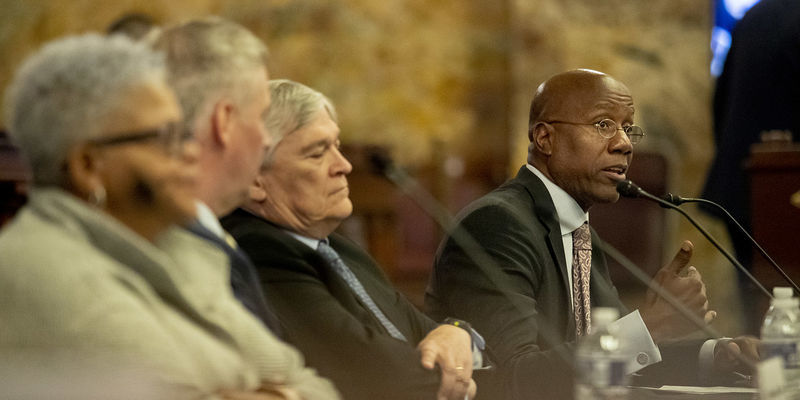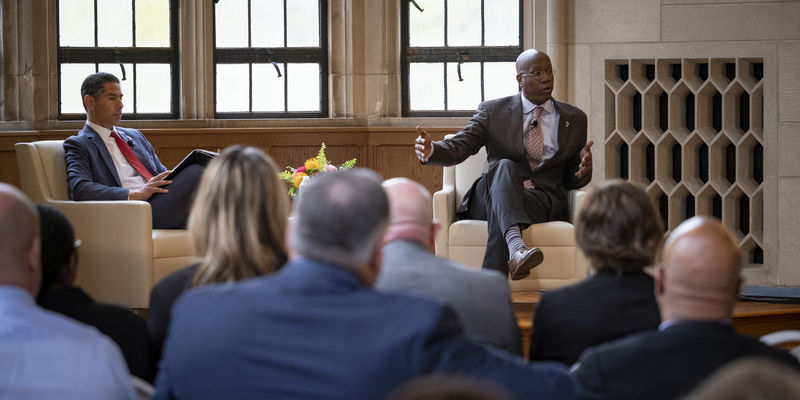President Wingard highlights Center City Business Association’s “Lunch with the City's Leaders”
Temple University President Jason Wingard joined Maura Shenker, director of Temple’s Small Business Development Center, for a candid conversation at Philadelphia’s Union League

A sold out crowd of Philadelphia business leaders and executives looked on as Dr. Jason Wingard, president of Temple University, and Maura Shenker, director of Temple’s Small Business Development Center, took the stage at the The Union League of Philadelphia for a special one-on-one conversation.
“When companies see a Temple student’s résumé, what do you want them to think of first?” Shenker asked Wingard early in the discussion.
President Wingard’s response came without delay.
“In a word: Excellence,” he said. “Excellence in terms of academic preparation and excellence in terms of career readiness.”
The discussion between Wingard and Shenker was part of the Center City Business Association’s “Lunch with the City's Leaders” series. It was the association’s first in-person event since before the start of the COVID-19 pandemic in early 2020.
Representatives from businesses and organizations spanning several industries attended the candid conversation. Comcast, J.P. Morgan, Jefferson Health and Univest Corporation were just some of the companies represented.
Throughout the candid conversation, Wingard and Shenker discussed everything from the future of work to Temple’s engagement with the community. They even debated the value of a paid versus unpaid internship.
“Historically, paid internships were readily available to students. But now, we’re seeing an increased number of students forced to take unpaid internships. While they often get a great experience, unpaid internships require students to rely on their parents to support and supplement them during that engagement--which can be a challenge,” Wingard said. “At Temple, this is something we want to look at. We can explore doing a special fundraising initiative to support our students, so they can have paid internships, and we can also use our influence with our corporate partners to offer more opportunities for pay.”
The topic of curriculum was also brought up through the discussion. The future of work is one of President Wingard’s key research interests, but he is also equally focused on the future of learning.
As the workplace adapts, higher education must do the same. Wingard assured audience members that this is something that Temple is already focusing on.
“What we do at universities, in general, is adjust our curriculum every 10 to 15 years," Wingard said. "At Temple, we're focused on adapting our curriculum on a much more frequent basis. It doesn't have to be dramatic, but we need to constantly be asking that question of industries, of business leaders, of employers: ‘What skills are you looking for?’ This allows us to design curriculum and teaching experiences that prepare students for the jobs of the future.”


